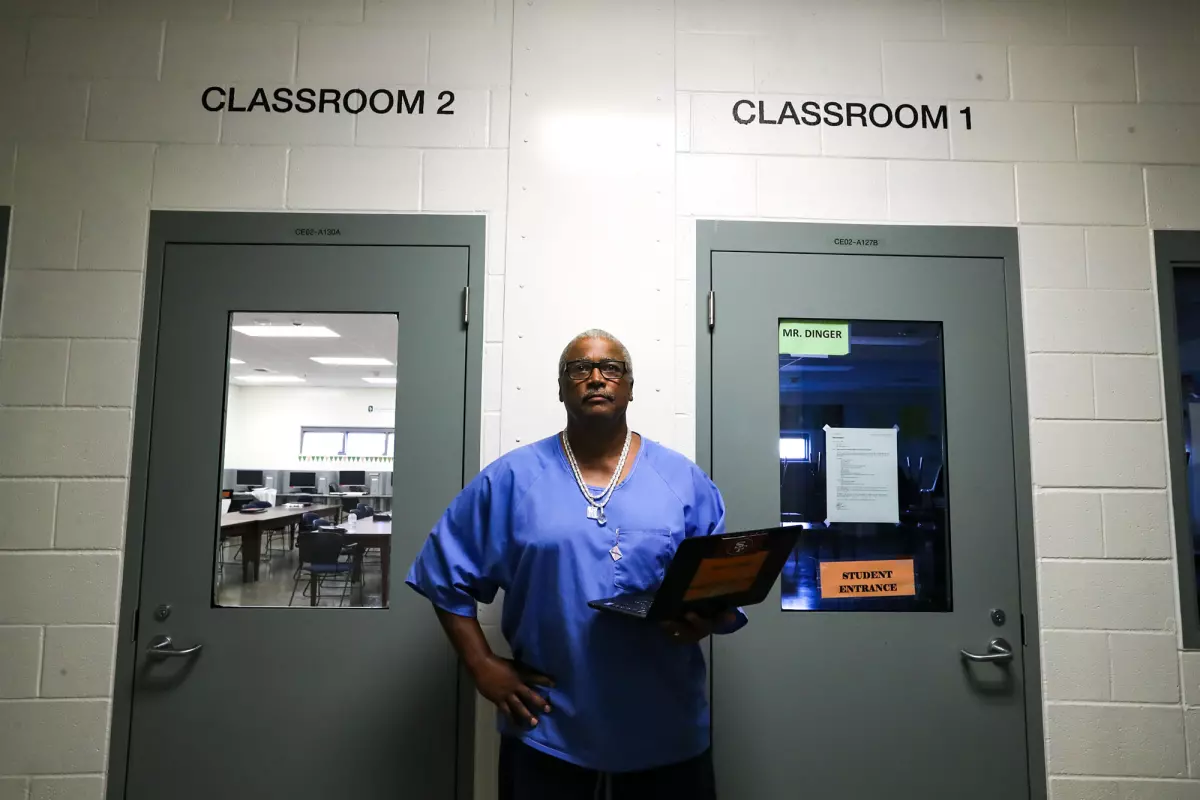Incarcerated Students Pursue Master's Degrees

I. A Pledge Kept
Decades ago, as a young boy in Santa Rosa, Luke Scott made a promise to his mother that he would one day graduate from college. Despite being sentenced to life in prison for murder in 1988 without the possibility of parole, Scott remained true to his word.
II. Degrees Behind Bars
In 2010, Scott, at 60 years old, achieved his first of eight associate's degrees from Coastline Community College while serving time at Salinas Valley State Prison. His mother proudly displayed a copy of his first degree on her wall, celebrating her son's remarkable accomplishments. Years after his mother's passing in 2011, Scott continued to defy the odds by earning a bachelor's degree in communications from Sacramento State while incarcerated at Mule Creek State Prison.
III. The Pursuit of a Master's Degree
But Scott's thirst for knowledge didn't stop there. He is now among 33 students participating in a groundbreaking two-year master's program in humanities, a collaboration between the California Department of Corrections and Rehabilitation (CDCR) and Cal State Dominguez Hills, commencing in September.
IV. A Revived Program
The program represents the resurrection of a similar humanities degree that existed since 1974 but was discontinued in the past decade due to dwindling enrollment. After the persistent efforts of incarcerated students keen on a master's program, and with the support of Professor Matthew Luckett, who now serves as the program's director, the CDCR joined hands with Cal State Dominguez Hills to reintroduce this degree program.
V. A Modern Approach to Education
Unlike previous opportunities for inmates to earn a master's degree, which usually involved out-of-state colleges and relied heavily on mail communication with professors, the new program embraces technology. Students use state-issued laptops to take online courses through a portal, where they can access and submit assignments, as well as communicate with their instructors.
VI. Overcoming Challenges
However, navigating the educational landscape within a prison comes with its own set of challenges. Incarcerated students face limitations on internet access, and safety measures have been enforced. Consequently, in-person instruction and online debates between students, as well as video livestreams, require significant approvals. The program encountered initial challenges with Wi-Fi access and the distribution of books and reading materials to students.
VII. A Dedication to Learning
Despite the obstacles, students like Scott dedicate approximately seven to eight hours per day to their studies, in addition to participating in rehabilitative programs and group therapy sessions. They strive for academic excellence in a prison environment marked by noise and disruption, using any available quiet space or classroom to focus on their coursework.
VIII. Restoring Higher Education
The program represents a significant step in the long-standing nationwide and Californian effort to restore higher education opportunities in prisons. Decades ago, the availability of higher education in prisons suffered a setback with the 1994 federal crime bill that cut Pell Grant funding for incarcerated individuals, substantially limiting access to college education.
IX. A Brighter Future
The new master's program offers hope and a chance for personal growth, transcending the confines of a prison cell. Williams and Scott, along with their fellow students, are already contemplating how they can apply their degrees. These students have set their sights on a brighter future, demonstrating that education knows no bounds, even within the prison system.
